Contact us to learn more about our experience in using Salesforce Health Cloud to achieve these results.
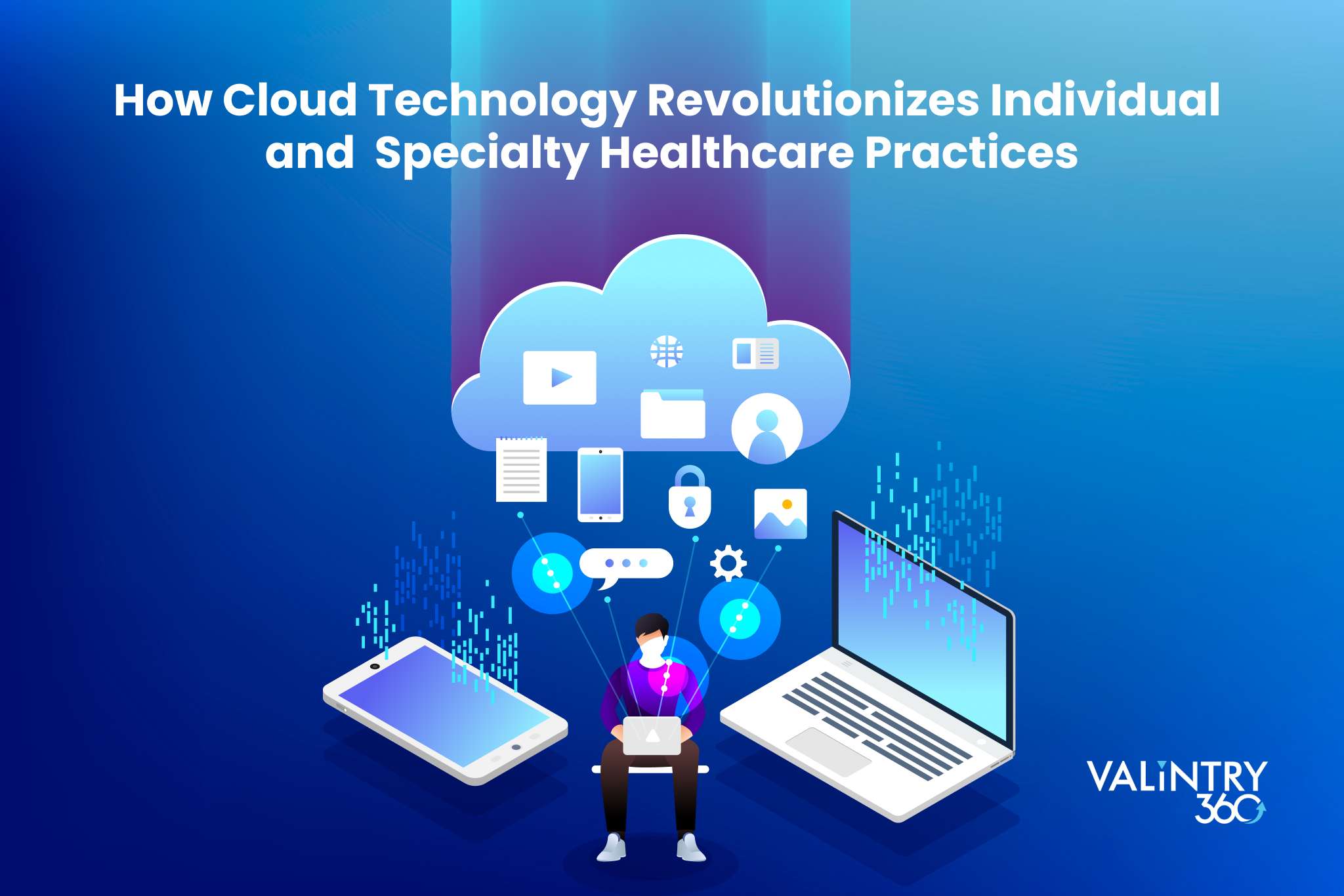
Sep 21, 2023
- Salesforce Health Cloud
Introduction
In today’s rapidly evolving healthcare landscape, staying at the forefront necessitates the adoption of cutting-edge technology. This includes innovations that not only enhance patient care but also streamline operational processes while safeguarding sensitive data. Healthcare CRM technology has emerged as a pivotal force in this transformation. It is reshaping both individual and specialty healthcare practices in profound ways. This blog aims to delve into the myriad ways in which cloud technology is revolutionizing these healthcare sectors, ushering them into an era characterized by heightened efficiency and a renewed focus on patient-centric care.
Table of Content
Understanding Cloud Technology
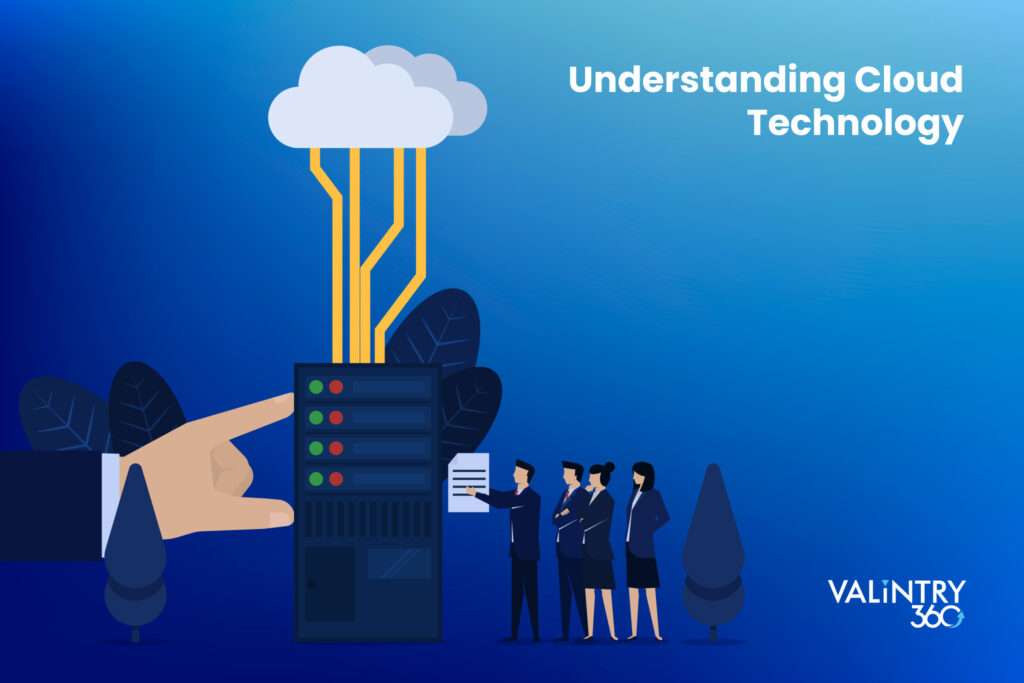
Cloud technology, often referred to as cloud computing, is a revolutionary paradigm that enables the delivery of computing services over the Internet. Instead of relying on local servers or personal devices to handle applications and store data, cloud technology utilizes remote data centers to provide a range of services, including data storage, processing, and software applications.
Key characteristics of cloud technology include
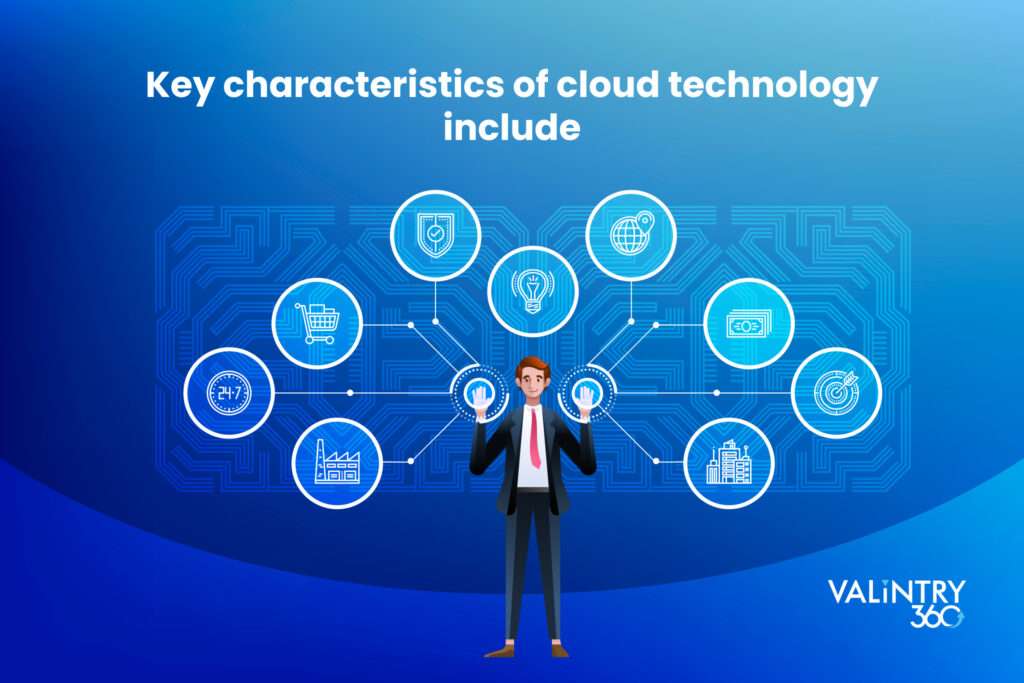
Cloud technology, often referred to as cloud computing, is a revolutionary paradigm that enables the delivery of computing services over the Internet. Instead of relying on local servers or personal devices to handle applications and store data, cloud technology utilizes remote data centers to provide a range of services, including data storage, processing, and software applications.
On-Demand Access
Users can access cloud services as needed, scaling resources up or down based on requirements.
Resource Pooling
Cloud providers utilize multi-tenant models, efficiently allocating resources across multiple users.
Rapid Elasticity
Cloud resources can quickly adapt to fluctuations in demand, ensuring optimal performance.
Self-Service
Users can provision and manage resources independently through web interfaces.
Broad Network Access
Cloud services are accessible over the internet from various devices.
Measured Service
Users pay for the specific resources they consume, promoting cost-efficiency.
What are the benefits of Salesforce Health Cloud Technology?
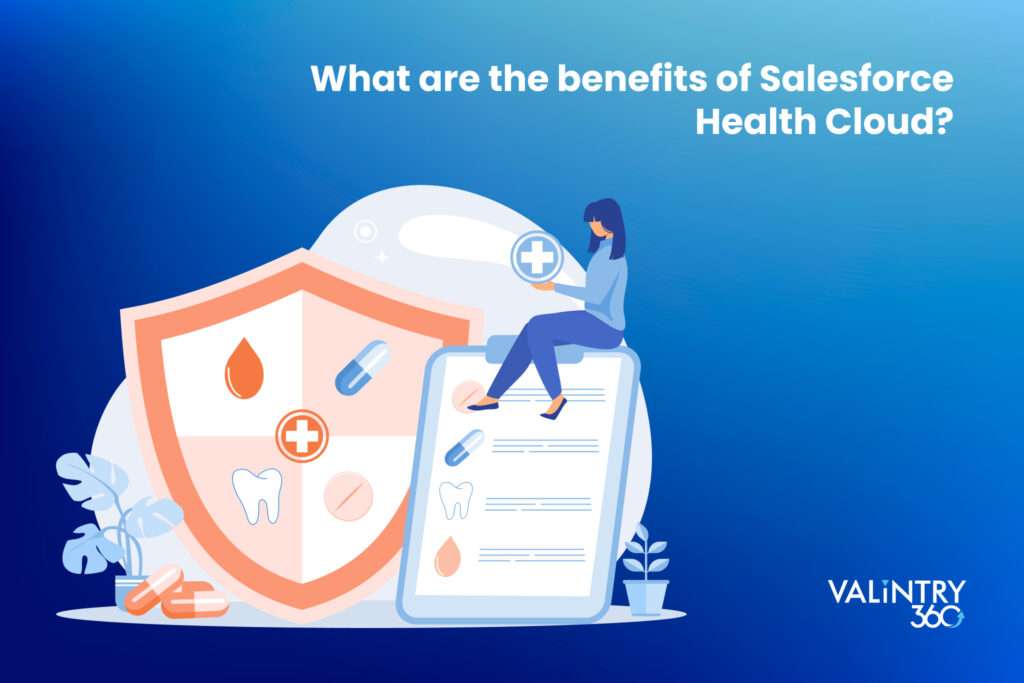
- 360-Degree Patient View: Health Cloud provides a unified view of patient data, enabling healthcare providers to access comprehensive patient information, including medical history, treatment plans, and social determinants of health. This holistic view improves care coordination and decision-making.
- Patient Engagement: The platform offers tools for personalized patient engagement, allowing providers to communicate with patients through their preferred channels. This enhances patient satisfaction and adherence to treatment plans.
- Care Coordination: Salesforce Health Cloud supports seamless collaboration among care teams. It enables providers to share information, assign tasks, and track patient progress, leading to better care coordination and reduced administrative burden.
- Data Security and Compliance: Health Cloud is built on Salesforce’s secure infrastructure, ensuring data privacy and compliance with healthcare regulations like HIPAA. This peace of mind is crucial in healthcare, where data security is paramount.
- Analytics and Insights: The platform offers robust analytics capabilities, allowing organizations to derive actionable insights from their data. This data-driven approach can improve clinical outcomes and operational efficiency.
- Mobile Access: Health Cloud is accessible via mobile devices, empowering healthcare providers to access patient information and collaborate on the go, enhancing productivity and responsiveness.
- Integration: It seamlessly integrates with other healthcare systems and applications, streamlining workflows and reducing duplication of efforts.
- Patient-Centric Approach: Salesforce Health Cloud prioritizes the patient’s well-being, ensuring that care plans are tailored to individual needs and preferences.
- Efficiency and Cost Savings: By automating many administrative tasks and improving operational efficiency, Health Cloud helps healthcare organizations reduce costs and reallocate resources where they are needed most.
How Cloud Technology Revolutionizes Individual and Specialty Healthcare Practices
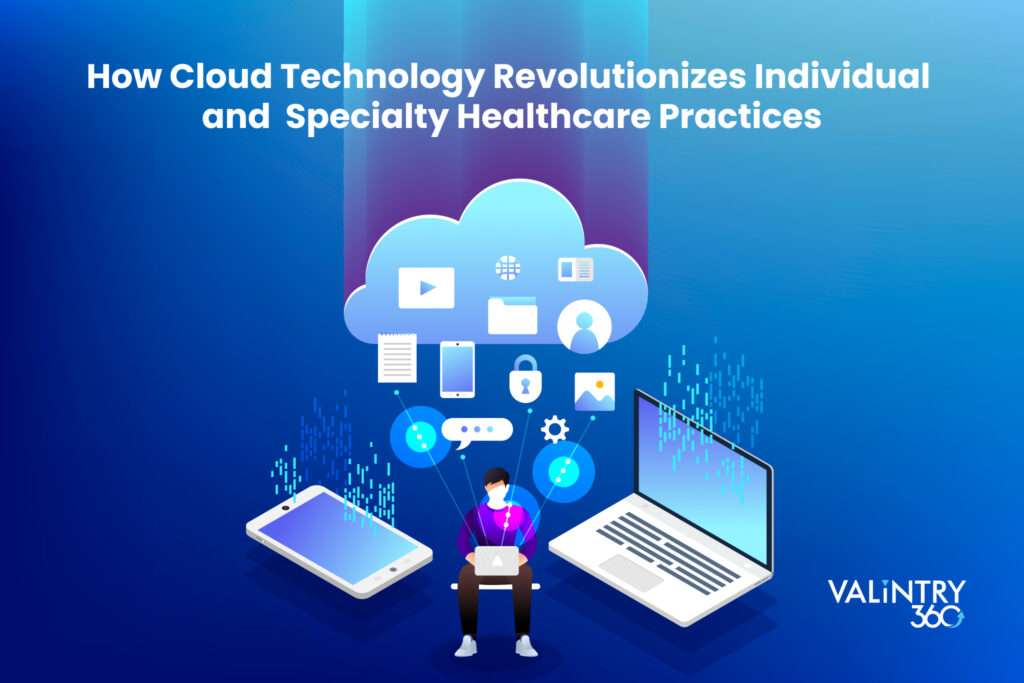
1. Accessibility and Mobility
Cloud technology empowers healthcare professionals with unmatched accessibility and mobility. They can securely access patient data and essential applications from anywhere with an internet connection, whether it’s from home or during hospital rounds. This convenience enhances efficiency and facilitates more patient-centric care. Additionally, advancements in telemedicine and healthcare mobile app development further amplify these benefits, allowing professionals to connect with patients and colleagues remotely, and contributing to the evolution of modern healthcare practices.
2. Scalability and Cost Efficiency
Healthcare practices, including individual and specialty ones, often grapple with the need for growth while managing costs. Cloud-based solutions offer an elegant solution by providing scalable infrastructure that can expand or contract to meet the practice’s requirements without the burden of significant upfront investments in physical infrastructure. This agility allows smaller practices to access advanced technology, benefiting from the efficiencies and capabilities that were traditionally exclusive to larger institutions.
3. Enhanced Data Security and Compliance
Healthcare practices are entrusted with sensitive patient information that demands the highest level of security. Cloud providers invest significantly in data security measures, including encryption, access controls, and robust disaster recovery plans. This ensures that patient data remains safe and compliant with industry regulations such as HIPAA (Health Insurance Portability and Accountability Act).
4. Streamlined Operations and Efficiency
Healthcare practices are entrusted with sensitive patient information that demands the highest level of security. Cloud providers invest significantly in data security measures, including encryption, access controls, and robust disaster recovery plans. This ensures that patient data remains safe and compliant with industry regulations such as HIPAA (Health Insurance Portability and Accountability Act).
5. Telehealth and Remote Patient Monitoring
Cloud technology has been instrumental in the widespread adoption of telehealth and remote patient monitoring. Specialty practices can conduct virtual consultations, monitor patients remotely, and provide timely interventions when necessary. This not only increases patient access to specialized care but also enhances the overall patient experience.
6. Advanced Analytics and Decision Support
Cloud-based analytics tools help individual and specialty practices derive valuable insights from patient data. These insights can inform treatment decisions, identify trends, optimize care plans and track patient outcomes. With data-driven decision-making, practitioners can tailor treatments to individual patient needs more effectively and keep them informed on the progress with their care.
7. Collaboration and Interoperability
Cloud technology promotes seamless collaboration among healthcare professionals. Individual practitioners can easily share patient data, medical images, and treatment plans with specialists, facilitating multidisciplinary care teams. Moreover, interoperability among different healthcare systems and providers enhances the continuity of care for patients.
Conclusion
Cloud technology is catalyzing a revolution in individual and specialty healthcare practices. By offering accessibility, scalability, enhanced data security, streamlined operations, and innovative telehealth solutions, the cloud empowers healthcare professionals to provide better patient care and improve overall practice efficiency.
In an increasingly interconnected healthcare ecosystem, cloud technology is not just an option but a necessity for healthcare practices that seek to stay competitive, deliver patient-centered care, and drive innovation in their respective specialties. The cloud is not just a technological solution; it’s a key driver of progress in healthcare.
Related Posts
- Salesforce Health Cloud
Jul 16, 2024
Salesforce Health Cloud vs. Traditional Healthcare IT: Which…
In the evolving realm of healthcare technology, Salesforce Health Cloud and traditional healthcare IT systems are at the forefront of debate among industry experts. Traditional IT systems have long provided stability and familiarity in managing patient records, scheduling, and billing…
- Salesforce Health Cloud
Jul 16, 2024
Optimizing Workflow Efficiency with Salesforce Health Cloud
Inefficiencies in healthcare practices, such as fragmented workflows, redundant tasks, and poor communication, impact patient care and increase costs. Addressing these issues requires integrated systems to streamline operations, reduce redundancies, and improve communication. Additionally, staff training and standardized processes promote…
- Salesforce Health Cloud
Jul 16, 2024
Salesforce Health Cloud: How to Improve Patient Engagement…
In a rapidly evolving healthcare landscape, patient engagement and outcomes are critical priorities for providers committed to delivering exceptional care. Salesforce Health Cloud emerges as a transformative solution designed to enhance these priorities through advanced technologies and patient-centric approaches. From…

